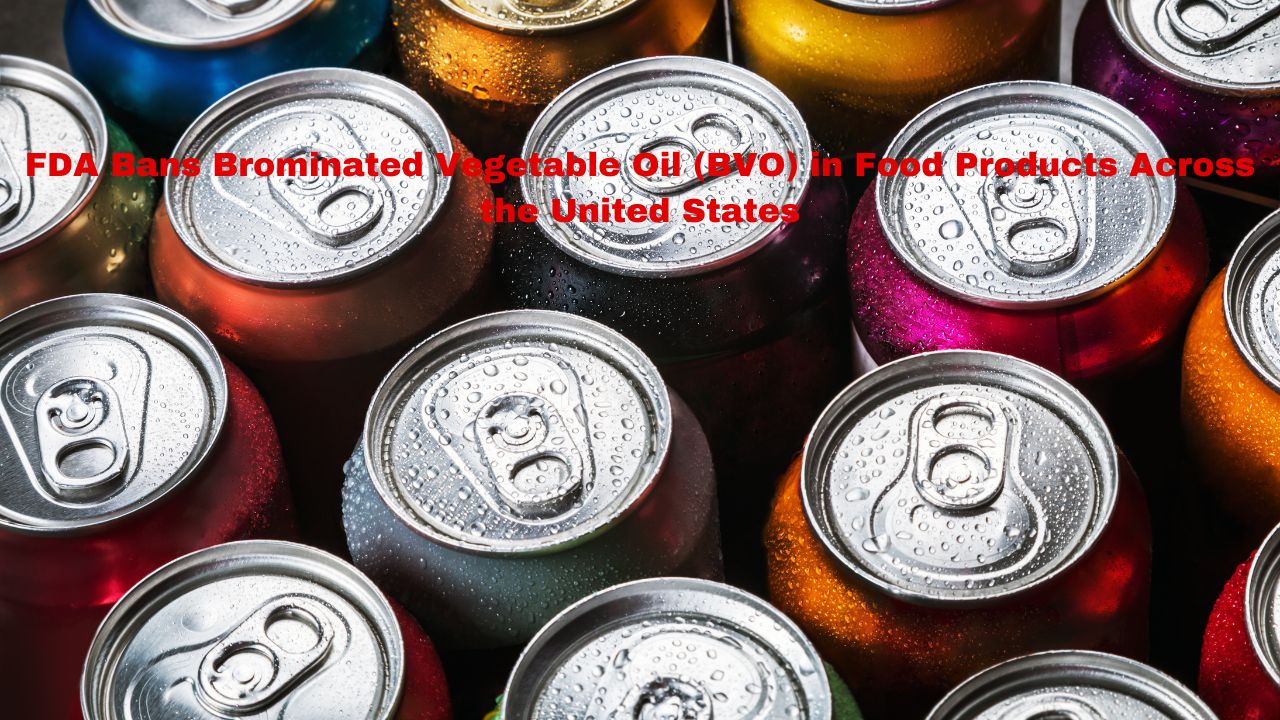In a significant move to protect public health, the U.S. Food and Drug Administration (FDA) has announced a nationwide ban on the use of brominated vegetable oil (BVO) as a food additive. The decision, effective August 2, 2024, comes after decades of scrutiny and recent studies revealing potential adverse health effects associated with BVO consumption12.
BVO, a vegetable oil modified with bromine, has been used in small amounts to prevent citrus flavoring from separating in some beverages. The FDA initially removed BVO from its “Generally Recognized as Safe” (GRAS) list in 1970 but continued to allow its limited use in fruit-flavored beverages16.
The FDA’s decision to ban BVO follows collaborative research with the National Institutes of Health (NIH), which found potential adverse health effects in humans1. This action aligns with similar bans already in place in Europe, Japan, and more recently, California, which prohibited BVO under the California Food Safety Act in October 202323.
Studies have linked BVO to various health hazards, including:
- Potential harm to the nervous system
- Thyroid issues
- Headaches
- Skin and mucous membrane irritation
- Fatigue
- Loss of muscle coordination and memory3
Research indicates that large amounts of BVO-containing soda consumed over extended periods may lead to these health problems3.
Many beverage manufacturers had already begun phasing out BVO from their products prior to the FDA’s announcement. Notable companies such as PepsiCo and Coca-Cola have reformulated their beverages to exclude BVO, with Coca-Cola confirming the removal of BVO from all its drinks by the end of 201423.
The FDA has set a one-year compliance period following the August 2, 2024 effective date. This grace period allows companies to reformulate their products, update labels, and deplete existing inventory of BVO-containing items before enforcement begins14.
While the ban is set to take effect, consumers are advised to remain vigilant and carefully read ingredient labels, as some BVO-containing products may still be available on store shelves. Experts recommend choosing fresh whole foods and water over sodas or juices to minimize exposure to BVO and other potentially harmful additives35.
The FDA’s decision to ban BVO underscores the agency’s commitment to reassessing the safety of food ingredients as new data becomes available. This move is part of a larger effort to address safety concerns and regulate ingredients added to food16.
Environmental Working Group’s Scott Faber called the ban “a victory for public health” but criticized the lengthy regulatory process, stating, “It’s outrageous that for years Americans have been consuming a chemical banned in Europe and Japan”3.As the food industry adapts to this change, consumers can expect to see reformulated versions of their favorite citrus-flavored beverages in the coming months. The ban on BVO marks a significant step towards ensuring the safety of food additives in the United States and highlights the ongoing need for vigilant oversight of the food supply45.








